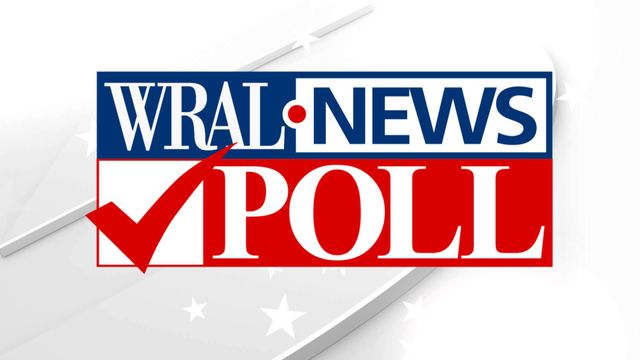WRAL News poll: Romney edges ahead in NC as election nears
Mitt Romney has moved ahead of President Barack Obama in North Carolina in the final week before the election, according to a WRAL News poll released Tuesday.
Posted — UpdatedSurveyUSA polled 682 likely voters statewide between Saturday and Monday and found that 50 percent would vote for Romney and 45 percent for Obama if the election were held now. The remaining 5 percent were either undecided or voting for another candidate.
The poll has a margin of error of plus or minus 3.8 percentage points.
In a WRAL News poll conducted four weeks ago, Obama and Romney were in a virtual dead heat for North Carolina's 15 electoral votes, with Obama at 49 percent and Romney at 47 percent.
The results of the latest poll contrast sharply with other recent surveys that show North Carolina as a toss-up in next week's election. An Elon University Poll of likely voters that was released Monday, for example, showed both men at 45 percent, with 5 percent still undecided.
"We've seen so much volatility in this race, so you can move from a deadlocked race to a 5 percentage point race over a matter of days," said David McLennan, a political science professor at William Peace University in Raleigh.
The shift in the WRAL News polls appears to come primarily from Romney eliminating Obama's lead among female voters. In early October, the president held a 53 to 44 percent lead among women, but both men now are at 47 percent in that demographic.
Meanwhile, Romney has widened his lead among male voters. He now holds a 52 to 43 percent margin there, up from 51 to 44 percent in early October.
The former Massachusetts governor also has opened up sizable leads among independents and wealthier voters in recent weeks.
What had been a virtual tie among independents – 45 to 43 percent in favor of Romney – has turned into a 12-point advantage for him. Romney and Obama also were tied in early October among voters with annual incomes of more than $80,000, but Romney now leads among that group by 59 to 37 percent.
Romney continues to hold a 50 to 45 percent margin among the coveted middle-class voters, while Obama has widened his lead among lower-income voters from 13 to 15 points.
Younger voters, a key segment of his victory in 2008, still favor Obama by 53 to 38 percent, but Romney has narrowed that gap slightly in recent weeks. Similarly, Obama has cut into Romney's lead among voters age 50 or older, although Romney still holds a 53 to 43 percent margin there.
The poll shows that Obama has banked much of his support in North Carolina through early voting.
One-third of respondents have already cast votes in person, and the president leads among them by a 56 to 43 percent margin. He also leads among the small number of absentee voters by 53 to 40 percent, while the candidates are even among the respondents who plan to vote early this week.
Those early votes for Obama aren't likely to stand up, according to the poll. Another third of those surveyed plan to wait until Election Day to vote, and Romney leads that group by a 60 to 33 percent margin.
Economy on voters' minds
Some of Obama's weakness in North Carolina might be traced to the fact that many voters don't feel the last four years under his leadership have been a success.
Forty-four percent of those polled said their families were worse off financially than in 2008, which was twice as many who said they are better off now. Thirty-four percent said their financial conditions remain unchanged from four years ago.
Still, a majority of voters expressed optimism when discussing North Carolina's economy. Fifty-two percent say it will get stronger in the coming year, compared with 7 percent who foresee more troubles and 25 percent who expect it to continue sputtering along as it has been.
Republicans get the nod by 49 percent of respondents when it comes to handling the U.S. economy. Forty-one percent said Democrats can be trusted more with economic matters.
Other than the economy, health care is the most important issue among voters. Forty percent of respondents named it as the second-most-pressing issue in the U.S., followed by education at 21 percent, the war on terror at 15 percent and immigration at 10 percent.
McLennan said health care was cited so much because of the Patient Protection and Affordable Care Act that Obama helped pass two years ago. Romney has vowed to repeal the health care reform law.
"It's a lightning rod issue – half of the country is for it and half of the country is against it," McLennan said.
• Credits
Copyright 2024 by Capitol Broadcasting Company. All rights reserved. This material may not be published, broadcast, rewritten or redistributed.





